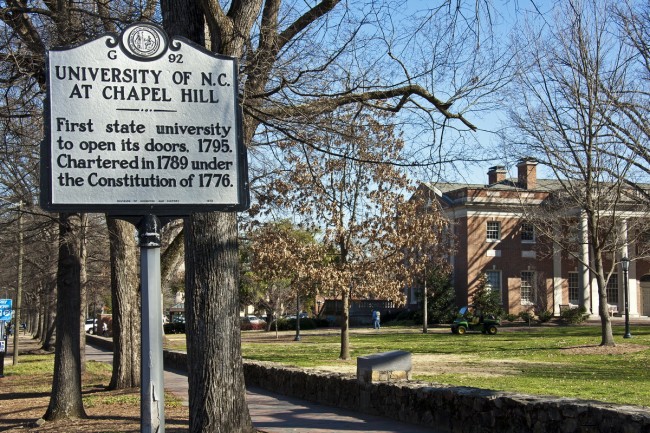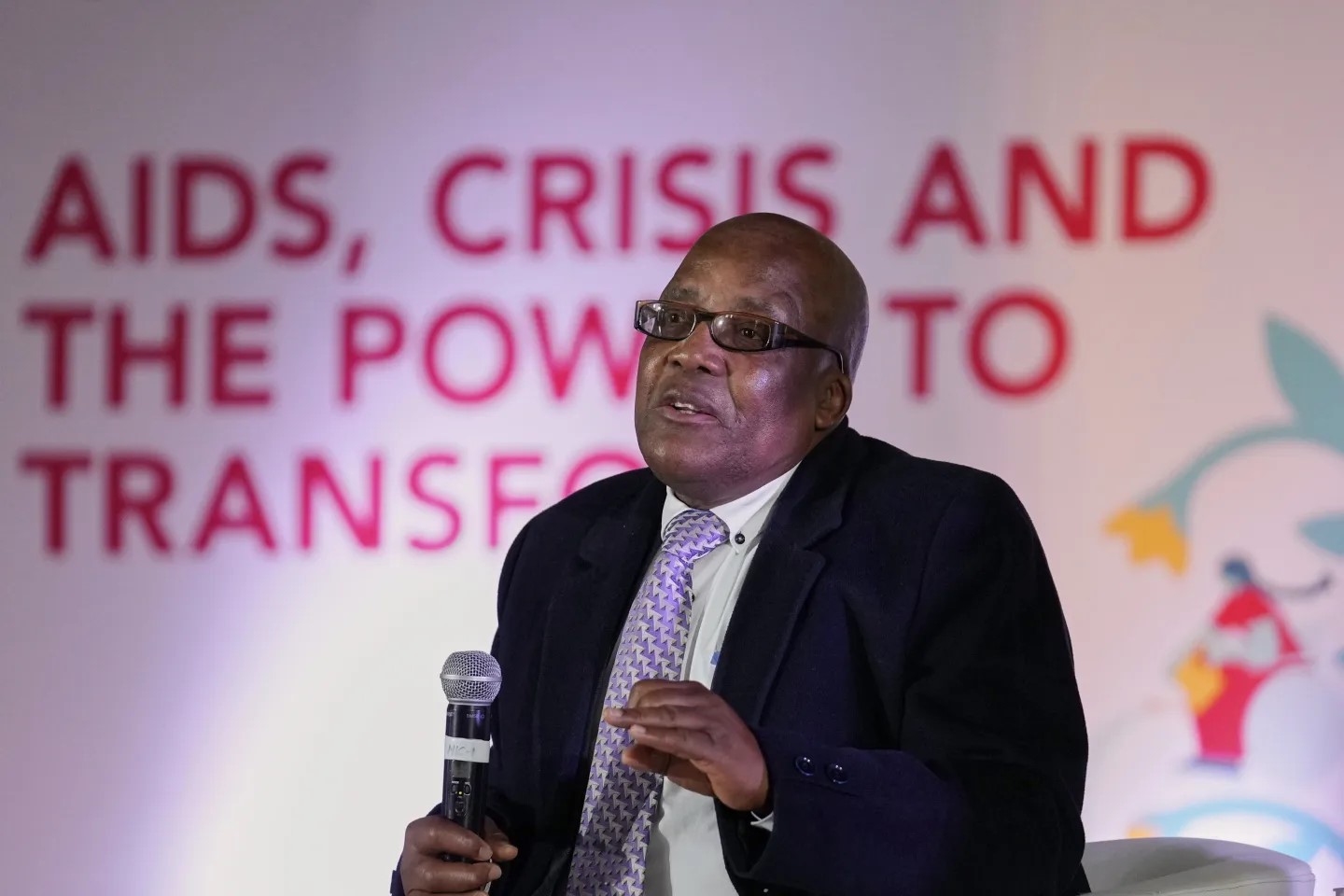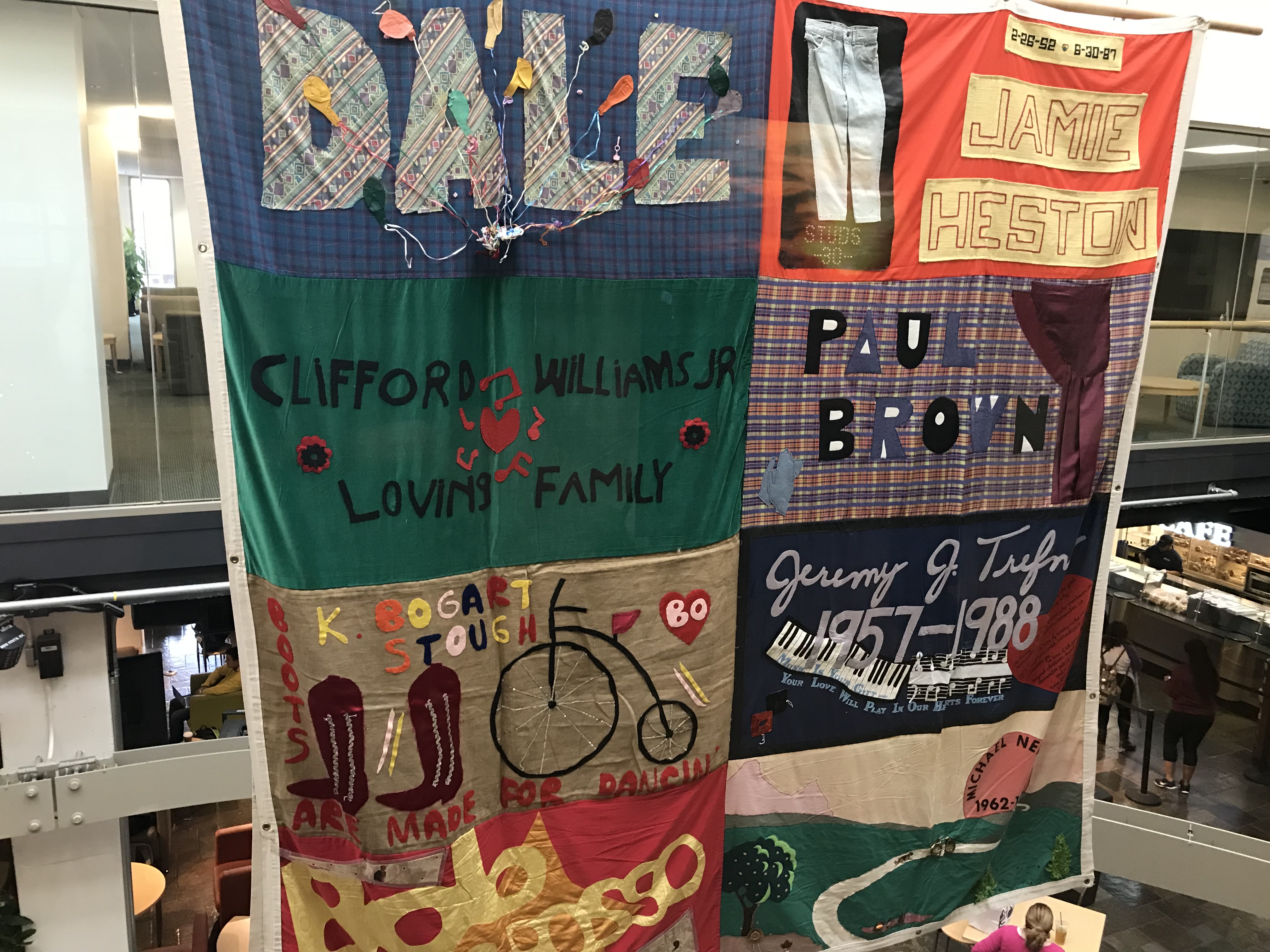Once considered a death sentence, HIV is now a treatable disease as a result of research done by UNC and across the globe.
UNC hosted their 17th annual World AIDS Day Symposium on Friday to discuss treatment and research for the future. Dr. Christopher Hurt, Clinical Assistant Professor at UNC, said a lot has changed in HIV treatment.
“At the initial part of HIV treatment in the mid 1990s, it was a full-time job,” he said. “Multiple pills multiple times a day, they often made people very sick in terms of side effects and now it’s light years ahead of what we used to have.”
Patients now have the option to take one pill a day, which is so effective that the pill plays a role in both treatment and prevention of further infection.
“A huge development, which UNC has been a part of is the idea of treatment as prevention,” UNC Clinical Assistant Professor Dr. Claire Farel said. “What that means is when people are on antiretroviral therapy, their viral load, which is the amount of HIV that is circulating in their blood, is nothing. It’s undetectable.”
She said the virus is still in the body, but because it is not in the bloodstream it is much less likely to spread to another person because the virus spreads from person to person through the contact of bodily fluids.
“We can get somebody to undetectable in a matter of weeks” Farel said. “Right now, six weeks is our expectation for somebody who has never been on medicine. When they start medicine, if they’re not undetectable in six weeks then we’ve failed them.”
Hurt said there is also preventive medication that people who are at risk can take to stop infection. He said people most at risk are men who have sex with men, injection drug users or someone who is in a relationship with someone with HIV.
“You can take a medication that’s approved by the FDA and that basically acts like a shield,” Hurt said. “If you’re exposed to the virus, it kills the virus before it has a chance to set up shop in the body.”
There are currently 36,000 cases of HIV in North Carolina. Because of the success of the medication developed, Hurt said they are able to start researching a possible cure for HIV, but doing so is difficult.
“One important part of the virus’ life cycle is that it becomes part of your own genes, your own DNA,” he said. “That’s the point where the cure is a challenge. It’s now a part of your genes, so in order to really cure it, we have to find a way to extract it, either by kicking it out of the genes or coaxing it out of the genes and then killing it.”
Farel said, even though there is a lot of optimism in HIV research, people must still remain cautious. HIV care is available at UNC and across the state.
Related Stories
‹

UNC Researchers Using Technology to Fight HIVPeople under the age of 30 account for most of the HIV cases in the United States. But a new program at UNC is designed to try and change that. The National Institutes of Health granted the university and colleagues at Emory $18 million over the next five years to develop the UNC/Emory Center for […]
![]()
UNC Awarded $23 Million Grant for HIV ResearchUNC will continue its innovative “kick and kill” initiative for eradicating HIV after being chosen to receive funding from The National Institutes of Health. Over the next five years, UNC will receive funding of nearly $23 million after being chosen from a competitive application process by the NIH, according to a release from the university. […]

UN Says if US Funding for HIV Programs Is Not Replaced, Millions More Will Die by 2029In the last six months, the sudden withdrawal of U.S. money has caused a “systemic shock,” to the world's response to HIV infections.
![]()
UNC Alum Taking Over Leadership of FDAMonday starts the first official week with Ned Sharpless serving as the acting commissioner of the Food and Drug Administration. Sharpless took over in the role officially on Friday afternoon, according to the agency’s website. Sharpless has most recently been serving as the director of the National Cancer Institute, an appointment he accepted in 2017 […]

UNC Professor & Video Journalist Jim Kitchen Works at a Coffin Shop in MalawiMalawi was one of the more pleasant countries I’ve visited. It’s a tiny country, roughly the size of Georgia, and it’s one of the friendliest and hospitable places in Africa. It was almost unsettling how people will speak freely with you. For example, in the elevator, people will just say hello and ask how […]

Panel of AIDS Memorial Quilt on Display at UNCA panel of the AIDS Memorial Quilt is currently on display at UNC’s Student Union. UNC Sophomore Elizabeth Trefney and her family organized to bring the panel, which features her uncle Jeremy who died of AIDS, to UNC. Trefney hopes bringing the panel to UNC will help continue to raise awareness for the disease. “I […]
![]()
Local Researchers Develop New Cancer-Fighting TechniqueA team of biomedical engineers working within a joint department of North Carolina State University and the University of North Carolina at Chapel Hill had their research published two weeks ago. According to Dr. Zhen Gu, the team’s senior author, the research focuses on using blood platelets to minimize the spread of cancer cells after […]
![]()
Advocates Hopeful for Continued Fight Against AIDS Under New AdministrationThere are more than 56,000 new cases of HIV infection each year in the country. But the Office of National AIDS Policy is trying to change that. It was originally created under President Bill Clinton’s administration to respond to the AIDS epidemic during the 1990s. But former President Barack Obama released a national strategy in […]
![]()
HIV Awareness Soars After Charlie Sheen AnnouncementAfter actor Charlie Sheen publicly announced his HIV-positive status in November, the greatest number of HIV-related Google searches in the United States on a single day was recorded, according to study done by UNC professors. “This Charlie Sheen effect has generated one of the greatest public health awareness moments for HIV,” said study co-author Seth Noar. […]
![]()
UNC AIDS Day Symposium Focuses on HIV ResearchOnce considered a death sentence, HIV is now a treatable disease as a result of research done by UNC and across the globe. UNC hosted their 17th annual World AIDS Day Symposium on Friday to discuss treatment and research for the future. Dr. Christopher Hurt, Clinical Assistant Professor at UNC, said a lot has changed […]
›





